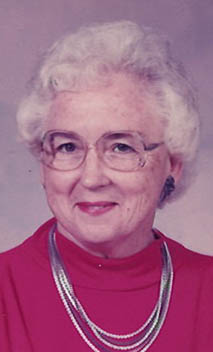It’s time to rename Longwood’s Ruffner Hall
Published 6:00 am Wednesday, June 24, 2020
|
Getting your Trinity Audio player ready...
|
In June 2020, the University of Virginia announced it would rename its Curry School and Ruffner Hall because their namesakes were prominent white supremacists. Will Longwood University follow suit and rename its Ruffner and Curry halls?
William Henry Ruffner (1824–1908) was a powerful and racist national education leader, and the creator of Virginia’s racially segregated and unequal public school system. He fought against the 1874 Civil Rights Bill that sought to legalize integrated public education 80 years before the U.S. Supreme Court’s Brown v. Board decision finally did so.
In one major national opinion piece Ruffner wrote: “With some small exceptions, the Africans are the lowest in the scale of races, while the white Americans ranked with the highest.” He then argued “there is a moral reason which of itself prevents co-education everywhere that negroes are numerous. They move on a far lower moral plane than the whites, as a class. Without going into particulars, it is enough to say that the average character and habits of these people render it highly proper in the whites to refuse to associate their children with them in the intimate relations of a school.” White supremacist vigilantes used this same racist argument and fear of interracial “intimate relations” to justify lynching thousands of innocent black Americans, like 22-year-old Archer “Archie” Cook, who was lynched and then riddled with bullets in Farmville in 1888.
While speaking to a national gathering of school superintendents in 1880, Ruffner stated: “It is idle for anyone to suggest a mixture of the races. It can’t be done. We must educate in separate schools, or not at all.” This belief was unfortunately shared by the segregationist officials who closed Farmville and Prince Edward County’s public schools for five years (1959-1964) to prevent school desegregation.
Ruffner resigned from Longwood in 1887 after working there for three years. The state board of education chose to rename the college’s administration building in his honor in 1948.
Honorary alumna Dr. Edna Allen Bledsoe Dean devoted more than 30 years of her life promoting diversity, equity, and true citizen leadership at Longwood, as a beloved mentor, pioneering multicultural student affairs professional, and one of Longwood’s few professors of color. Several generations of alumni say she’s the reason they survived and thrived. Dr. Bledsoe Dean poured her heart, wisdom, and Ivy League academic training into Longwood, despite being one of the hundreds of local black residents whose homes, businesses, and religious and civic spaces were demolished to expand the Longwood campus into Farmville’s historically black, former Race Street Baptist Church neighborhood. (The university apologized for its use of eminent domain in 2014.)
Dr. Bledsoe Dean’s mother, respected longtime local educator Vera Jones Allen, worked closely with the JFK Administration to open integrated local free schools in 1963. Dr. Bledsoe Dean and her family also led the group that founded the Moton Museum, a local civil rights National Historic Landmark the university once hoped to demolish. Dr. Bledsoe Dean’s older sibling, Edwilda Allen Isaac, was a leader of the 1951 Moton Student Strike that produced three-fourths of the plaintiffs in Brown v. Board. The two sisters were likely Longwood’s first unofficial black students when, as young girls, they were snuck through Ruffner Hall windows for secret piano lessons with music department faculty. Remembering this small, secret act of kindness, Dr. Bledsoe Dean cried as she watched “The Great Fire” engulf Ruffner Hall in 2001.
It’s hypocritical for Longwood to boast about its recent affiliation with the Moton Museum, while continuing to honor a man who personifies the very racism and white supremacy Moton students fought to end.
Given all Dr. Bledsoe Dean, as well as her family, contributed to Longwood, the local community, and the nation, it’s befitting poetic justice to replace a prominent building’s racist name with that of an anti-racist black woman deeply connected to Longwood’s history and development, and whose legacy best reflects the university’s noblest ideals today.
JUSTIN REID is a public historian, preservationist and Farmville native. He can be reached at jgreid@wm.edu.






